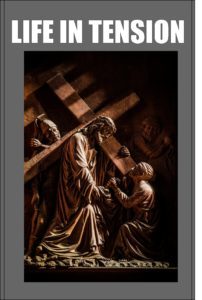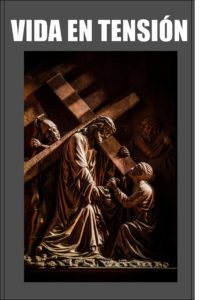Stephen W. Hiemstra's Blog, page 145
September 30, 2020
Exhaustion

Today many people have reached their point of exhaustion.
Exhaustion comes when all energy fails. When I ran the Marine Corps Marathon, I reached the point of exhaustion on crossing the 14th Street Bridge (mile 24) and reached up to wipe my forehead and found only salt crystals—I freaked out. Exhaustion is the point when failure seems inevitable, like when the freezing person suddenly desires only to go to sleep. When you reach the point of exhaustion, you continue only with great pain and because persistence has become a habit.
At this point, the corona virus pandemic is exhausting everyone. People are starting to do crazy things, not even aware of how crazy they are. Discarded masks can be found everywhere; businesses are opening in spite of the obvious risk; people are complaining and demonstrating and fighting. Why? No obvious reason. People are exhausted and do whatever their hearts desire without considering the consequences.
Temptation to risk is ever present when you are exhausted because you lack the energy to resist. It is no accident that Satan tempted Jesus in the desert—40 days without food leaves one exhausted and unable to resist. Exhaustion from dieting leaves one vulnerable to the temptation to eat—ask Esau, who sold his birthright to Jacob for a pot of stew (Gen 25:30-34). Is it any wonder that the first presidential debate yesterday looked like a mud wrestling contest? People are exhausted and doing crazy things.
When you are exhausted, the only rational thing to do is to pray.
§
God Almighty, Great Physician, Holy Spirit,
We praise you
for your goodness in granting us life,
which we often take for granted,
living as if tomorrow was always promised,
but knowing that it is not.
Break the power of sin over our lives—
forgive us for our presumptions,
for our neglect of giving thanks, and
for living selfishly for ourselves,
As though we were worthy.
Thank you
for your eternal presence,
your healing touch, and
for sending others to comfort us in our hour of need.
Break our bondage to worthless idols—
heal our broken bodies,
our troubled spirits, and
our damaged relationships,
for your name’s sake.
In the power of your Holy Spirit,
send us doctors to offer your healing touch and
nurses to offer your comfort in lonely hours.
Grant us strength for the day;
grace for those we meet; and
peace in a troubled world
that we might rest only in you,
this day and every day.
In Jesus’ precious name, Amen.1/
1/ Taken from: Stephen W. Hiemstra. Everyday Prayers for Everyday People. 2018. Centreville: T2Pneuma Publishers LCC.
Exhaustion
Also see:
Water Cooler Observations, June 24, 2020
Interview about the Corona Life in English and Spanish with Stephen W. Hiemstra, April 24, 2020
Managing Change
Believer’s Prayer
Other ways to engage online:
Author site: http://www.StephenWHiemstra.net
Publisher site: http://www.T2Pneuma.com.
Newsletter: http://bit.ly/Norm2020
The post Exhaustion appeared first on T2Pneuma.net.
September 29, 2020
Long: Honor God in Worship

Thomas Long. Beyond the Worship Wars: Building Vital and Faithful Worship. Herndon: Alban Institute.
Review by Stephen W. Hiemstra
Before I attended seminary, I spoke with a pastor who began quizzing me about a worship service that she was planning. The question totally stumped me. For me, worship was that mysterious experience on Sunday mornings that drew me closer to God (or not). I had no idea what worship was or how to plan it. As I studied worship in seminary, Thomas Long’s book, Beyond the Worship Wars, helped reduce the mystery in worship planning.
Long defines worship as: what happens when people become aware that they are in the presence of a living God (18). But how does a faithful church actually bring people into awareness of God? Long offers an interesting insight:
Even when Christian worship is at its best, it is much like that Mother’s Day breakfast. It is always the work of amateurs, people who do this for love, kids in the kitchen overcooking the prayers, half-baking the sermons, and crashing and stumbling through the responses on the way to an act of adoration (vii).
Does the word, humility, come to mind?
Beyond the Worship Wars is written in 10 chapters whose titles are instructive:
Worship wars: a report from the front lines.
Why do people come to worship? The presence of mystery,
Why do people come to worship? A sense of belonging.
All the world’s a stage—and heaven too.
O for a thousand tongues: the challenge of music.
Tents, temples, and tables: the space of worship.
Serving in this place: neighborhoods and mission.
Come to the joyful dance: memory and celebration.
In the spirit on the Lord’s Day: Leadership.
Epilog: Can revitalized worship happen here?
These chapters are preceded by a preface and acknowledgments and followed by notes and a bibliography.
In surveying Long’s chapter titles, is anything in all of creation left out? This is not an idle question, but more a theological one. The apostle Paul writes: And not only the creation, but we ourselves, who have the firstfruits of the Spirit, groan inwardly as we wait eagerly for adoption as sons and daughters, the redemption of our bodies (Romans 8:23). In writing about the cultural wars, new cultural realities lead Long (2) to observe that: rare also is the congregation that has not felt some stress, some measure of conflict over all this ferment in worship [and in the world!]
Long (2-9) sees the conflict arising between two groups. The first group seeks to recover the genuinely biblical worship of the ancient church as represented by interest in Bishop Hippolytus of the third century following Vatican II. The second group focuses on seeker [1] worship symbolized by the praise music of the Willow Creek Community Church (www.WillowCreek.org) led by Bill Hybels. While recognizing that the seeker worship is influenced more by our television culture than the Gospel story, Long sees wisdom in looking for a third-way that adopts the best of both worship styles (10-11).
How do we make room for God in worship, regardless of style?
Motivation clearly matters. Long (26) sees us coming to worship for two fundamental reasons: the hunger for communion with God [a sense of mystery] and the hunger for human community [a sense of belonging]. Theologians call the first need transcendence (God above us); they call the second immanence (God with us). When we come to worship, the question of authenticity quickly arises because if our view of God is too transcendent, worship is dry and lifeless. And if our view of God is too immanent, worship is too worldly. Hence, true worship involves balancing this tension.
Long (107-110) ends with four insights:
Pastoral leadership is the key to worship renewal.
Whenever worship is renewed, some congregational conflict is inevitable.
To change worship, significant lay involvement is necessary.
Education and publicity help pave the way for worship renewal.
How do we make room for God in worship? Long points out that the best worship is to some degree learned by heart (86). This is because when worship is memorized, we are less distracted and more open to God’s presence.
Long’s Book, Beyond the Worship Wars, is a helpful book which I have given as a gift to friends. Like many of the books published by the Alban Institute (www.alban.org), it is worth a look.
Footnotes
[1] A seeker is someone interested in (seeking) God , but not yet a believer
Long: Honor God in Worship
Also see:
Nouwen: Make Space for Self, Others, and God
Vanhoozer: How Do We Understand the Bible? Part 1
Books, Films, and Ministry
Other ways to engage online:
Author site: http://www.StephenWHiemstra.net
Publisher site: http://www.T2Pneuma.com
Newsletter: https://bit.ly/TestWater_2020
The post Long: Honor God in Worship appeared first on T2Pneuma.net.
September 28, 2020
Reviled: Monday Monologues (podcast) September 28, 2020
 Stephen W. Hiemstra 2020 (Ken Burtram Photography)
Stephen W. Hiemstra 2020 (Ken Burtram Photography)By Stephen W. Hiemstra
This morning I will share a prayer and reflect on being reviled. After listening, please click here to take a brief listener survey (10 questions).
To listen, click on this link.
Hear the words; Walk the steps; Experience the joy!
Reviled: Monday Monologues (podcast) September 28, 2020
Also see:
Monday Monologue On March 26, 2018
Other ways to engage online:
Author site: http://www.StephenWHiemstra.net,
Publisher site: http://www.T2Pneuma.com.
Newsletter: https://bit.ly/TestWater_2020
The post Reviled: Monday Monologues (podcast) September 28, 2020 appeared first on T2Pneuma.net.
September 27, 2020
Evening Lament

By Stephen W. Hiemstra
Blessed Lord Jesus,
Place your hedge of protection around me, Lord, for I am confused and afraid.
My strength fails me; my body aches; my children are yet lost; and it is night, when jackals run freely and the hyena contends with the lion over much carrion.
Have mercy on the children, Lord.
Spare me their voices in the night; spare me the weeping of souls forgotten and lost—be they familiar, near, and dear.
For the workman cannot save them from folly nor tell them what ears will not hear.
Yet, you God hear our prayers; your blessings blossom beyond measure daily.
Since the days of my youth, you have comforted me and given me life and hope and joy—to sing and dance and clap hands for the joy of your salvation which is near.
But now, let me rest securely until the new day awaits in morning sun with blessings and hope of rest with you, now and always.
In the name of the Father, the Son, and the Holy Spirit, Amen.
Evening Lament
Also see:
Believer’s Prayer
Other ways to engage online:
Author site: http://www.StephenWHiemstra.net
Publisher site: http://www.T2Pneuma.com.
Newsletter: https://bit.ly/TestWater_2020
The post Evening Lament appeared first on T2Pneuma.net.
Lamento de la Noche

Por Stephen W. Hiemstra
Bendito Señor Jesús,
Pon tu seto de protección a mi alrededor, Señor, porque estoy confundido y miedo.
Mi fuerza me falla; me duele el cuerpo; mis hijos aún están perdidos; y es de noche, cuando los chacales corren libremente y la hiena compite con el león con mucha carroña.
Ten piedad de los niños, Señor.
Ahórrame sus voces en la noche; ahórrame el llanto de las almas olvidadas y perdidas, ya sean familiares, cercanas y queridas.
Porque el trabajador no puede salvarlos de la locura ni decirles lo que los oídos no escucharán.
Sin embargo, tú, Dios, escucha nuestras oraciones; Tus bendiciones florecen más allá de la medida diaria.
Desde los días de mi juventud, me has consolado y me has dado vida, esperanza y gozo, para cantar, bailar y aplaudir con mis manos por el gozo de tu salvación que está cerca.
Pero ahora, déjame descansar con seguridad hasta que el nuevo día aguarde bajo el sol de la mañana con bendiciones y esperanza de descansar contigo, ahora y siempre.
En el nombre del Padre, el Hijo, y el Espíritu Santo, Amén.
Lamento de la Noche
Ver también:
Gospel as Divine Template
Otras formas de participar en línea:
Sitio del autor: http://www.StephenWHiemstra.net,
Sitio del editor: http://www.T2Pneuma.com.
Boletín informativo: https://bit.ly/TestWater_2020
The post Lamento de la Noche appeared first on T2Pneuma.net.
September 25, 2020
Persecution Gets Personal

Honored are you when others revile you and persecute you
and utter all kinds of evil against you falsely on my account.
(Matt 5:11)
By Stephen W. Hiemstra
The Ninth Beatitude is the capstone Beatitude in Matthew, which repeats Eighth Beatitude emphatically, in content, intensity, and position. The parallel in Luke’s Gospel is even more explicit: “Honored are you when people hate you and when they exclude you and revile you and spurn your name as evil, on account of the Son of Man!” (Luke 6:22) One commentator interprets:
The differences between Matthew and Luke reflect different settings in the Church’s mission. Persecution is a more general expression for the antagonistic behavior experienced by the Church in mission, while exclusion may well refer to the earlier, more specific mission within the synagogue setting. (Guelich 1982, 94)
Notice the verbs—revile, persecute, slander—the emphasis screams at us, the tension with others is intensified and the object of this vitriol shifts from righteousness (in general) to me (specifically). Generic persecution has become a personal attack (Wilkins 2004, 211). Tension is amplified by the shift from the third person (they) to the second person (you) (Neyrey 1998, 168). This intensification comes on top of the repetition of the Eight Beatitude and on top of being the capstone Beatitude. The emphasis here simply screams.
The verb in Greek, revile, means: “to find fault in a way that demeans the other, reproach, revile, mock, heap insults upon as a way of shaming.” (BDAG 5316.1) The noun form means: “loss of standing connected with disparaging speech, disgrace, reproach, insult.” (BDAG 5318)
The meaning of these words was perhaps intensified by Jesus’ body language. Jesus looks his disciples in the eye and addresses them as friends, like a commander knowing that when the battle begins they will have his back—this is an intense moment (Rom 5:6-8). Yet, the commander-pep-talk analogy breaks down because the disciples ultimately do not have his back and Jesus knows that he goes alone to the cross. Nevertheless, the coming cross gives urgency and intensity to this discussion. The disciples will be left behind and they must deal with persecution and revulsion on their own, especially when it involves their closest family and friends.
Reviled is used biblically in several specific contexts:
1. She conceived and bore a son and said, God has taken away my reproach. (Gen 30:23)
2. If a man takes his sister, a daughter of his father or a daughter of his mother, and sees her nakedness, and she sees his nakedness, it is a disgrace, and they shall be cut off in the sight of the children of their people. He has uncovered his sister’s nakedness, and he shall bear his iniquity. (Lev 20:17)
3. He will swallow up death forever; and the Lord GOD will wipe away tears from all faces, and the reproach of his people he will take away from all the earth, for the LORD has spoken. (Isa 25:8)
4. But I am a worm and not a man, scorned by mankind and despised by the people. (Ps 22:6)
5. Then I said to them, You see the trouble we are in, how Jerusalem lies in ruins with its gates burned. Come, let us build the wall of Jerusalem, that we may no longer suffer derision. (Neh 2:17)
The controlling idea in revulsion is to be left exposed to public ridicule for bareness, nakedness, or weakness. It is like a woman caught without clothes or a city without walls or, in a contemporary context, like the homeless person suffers exposure, ridicule, and abuse. Addicts and psychiatric patients may suffer similar abuse, but their exposure is less physical and more metaphorical. Jesus cites several of the above messianic passages himself, as when he cites Psalm 22 from the cross (Mark 15:34).
In these passages, Jesus addresses disciples in a communal, honor and shame culture. The Beatitudes address common themes—poverty, hunger, and mourning—shared by disciples driven out of and disinherited by their families and communities (Neyrey 1998, 168–169). The three verbs—revile, persecute, and slander—involve similar social stigma and expulsion themes, only with more intensity.
In our own context, the intensity of the response in being reviled underscores the fundamental nature of our faith decision. Jesus says:
And brother will deliver brother over to death, and the father his child, and children will rise against parents and have them put to death. And you will be hated by all for my name’s sake. But the one who endures to the end will be saved. (Mark 13:12–13)
“Jesus assumes that such a shift of loyalties will result in significant relational fallout.” (Hellerman 2001, 66)
Faith in Christ is not an incremental decision, as if we could approach God by tweaking our Sunday morning schedule, or giving more to the church, or occasionally improving our personal conduct. Faith in God is more like a wise guy renouncing the mafia or a rebel fighter responding to an amnesty program by laying down arms. Laying down arms requires a public ceremony where people on both sides notice. The public ceremony of baptism is celebrated both as sacrament of cleansing (baptism by sprinkling) and as a sacrament of death and rebirth (full immersion baptism) emphasizing the transition to faith.
The intensity of this transition to faith in the early church is often dismissed as merely an example of unity: “And all who believed were together and had all things in common. And they were selling their possessions and belongings and distributing the proceeds to all, as any had need.” (Acts 2:44-45) While this passage is an example of unity, it is also emblematic of significant stress for the disciples, who would normally share such moments primarily with family. Absent family fellowship, the picture of unity here is like an alliance of street people watching out for one another during the winter in the face of intense deprivation.
Intense persecution marks one as a Christian, which also marks one for salvation (Rev 22:4).
References
Bauer, Walter (BDAG). 2000. A Greek-English Lexicon of the New Testament and Other Early Christian Literature. 3rd ed. ed. de Frederick W. Danker. Chicago: University of Chicago Press. .
BibleWorks. 2015. Norfolk, VA: BibleWorks, LLC. .
Guelich, Robert. 1982. The Sermon on the Mount: A Foundation for Understanding. Dallas: Word Publishing.
Neyrey, Jerome H. 1998. Honor and Shame in the Gospel of Matthew. Louisville: Westminster John Knox Press.
Wilkins, Michael J. 2004. The NIV Application Commentary: Matthew. Grand Rapids: Zondervan.
Persecution Gets Personal
Also see:
Preface to a Life in Tension
Other ways to engage online:
Author site: http://www.StephenWHiemstra.net
Publisher site: http://www.T2Pneuma.com
Newsletter: https://bit.ly/TestWater_2020
The post Persecution Gets Personal appeared first on T2Pneuma.net.
Persecución se Convierte Personal

Honrado serán cuando los insulten y persigan,
y digan todo género de mal contra ustedes falsamente,
por causa de mí. (Matt 5:11)
Por Stephen W. Hiemstra
La Ninta Bienaventurza es la ultima Bienaventurza, que repite la octava Bienaventurza enfáticamente en contenido, intensidad, y posición. El paralelo en el evangelio de Lucas es aún más explícito: “Honrado son ustedes cuando los hombres los aborrecen, cuando los apartan de sí, los colman de insultos y desechan su nombre como malo, por causa del Hijo del Hombre.” (Luke 6:22) Un comentarista interpreta:1
Las diferencias entre Mateo y Lucas reflejan diferentes escenarios en la misión de la Iglesia. La persecución es una expresión más general del comportamiento antagónico experimentado por la Iglesia en la misión, mientras que la exclusión bien puede referirse a la misión anterior y más específica dentro del entorno de la sinagoga. (Guelich 1982, 94)
Observe los verbos: insultar, perseguir, calumniar: el énfasis nos grita, la tensión con los demás se intensifica y el objeto de este vitriolo cambia de la rectitud (en general) hacia mí (específicamente). La persecución genérica se ha convertido en un ataque personal (Wilkins 2004, 211). La tensión se amplifica por el cambio de la tercera persona (ellos) a la segunda persona (usted) (Neyrey 1998, 168). Esta intensificación se suma a la repetición de la octava Bienaventuranzas y además de ser la bienaventuranza final. El énfasis aquí simplemente grita.
El verbo griego, insultar, significa:2 “Para encontrar la culpa de manera que menosprecia a otra, reprochar, injuriar, burlarse, insultos como forma de avergonzar” (BDAG 5316.1). La forma del sustantivo significa: 3“Pérdida de posición relacionada con el discurso despectivo, la desgracia, el reproche, el insulto.” (BDAG 5318)
El significado de estas palabras quizás fue intensificado por el lenguaje corporal de Jesús. Jesús mira a sus discípulos a los ojos y se dirige a ellos como amigos, como un comandante sabiendo que cuando comience la batalla, sus ayudas estarán critical—este es un momento intenso. (Rom 5:6-8) Sin embargo, la analogía del pep-talk del comandante se rompe porque los discípulos últimatamente no le ayudan y Jesus sabe que él va solo a la cruz. Sin embargo, la cruz que viene da urgencia e intensidad a esta discusión. Los discípulos se quedarán atrás y deben lidiar con la persecución y la repulsión por su cuenta, especialmente cuando involucra a sus familiares y amigos más cercanos.
Reprochado se uso bíblicamente en algunas contextos específicamente:
1. Ella concibió y dio a luz un hijo, y dijo: Dios ha quitado mi afrenta. (Gen 30:23)
2. Si alguien toma a su hermana, hija de su padre o hija de su madre, viendo la desnudez de ella, y ella ve la desnudez de él, es cosa abominable; serán exterminados a la vista de los hijos de su pueblo. El ha descubierto la desnudez de su hermana, lleva su culpa. Lev 20:17)
3. El destruirá la muerte para siempre. El Señor DIOS enjugará las lágrimas de todos los rostros, y quitará el oprobio de su pueblo de sobre toda la tierra, Porque el SEÑOR ha hablado. (Isa 25:8)
4. Pero yo soy gusano, y no hombre; Oprobio de los hombres, y despreciado del pueblo. (Ps 22:6)
5. Entonces les dije: Ustedes ven la mala situación en que estamos, que Jerusalén está desolada y sus puertas quemadas a fuego. Vengan, reedifiquemos la muralla de Jerusalén para que no seamos más motivo de burla. (Neh 2:17)
La idea dominante en la repulsión es dejarse expuesto al ridículo público por esterilidad, desnudez, o debilidad. Es como una mujer atrapada sin ropa o una ciudad sin paredes o, en un contexto contemporáneo, como la persona sin hogar sufre exposición, ridículo y abuso. Los adictos y los pacientes psiquiátricos pueden sufrir abusos similares, pero su exposición es menos física y más metafórica. Jesús cita varios de los pasajes mesiánicos anteriores, como cuando cita el Salmo 22 desde la cruz (Mark 15:34).
En estos pasajes, Jesús se dirige a los discípulos en una cultura comunitaria, de honor y vergüenza. Las Bienaventuranzas abordan las temas comun—pobreza, hambre, y dolores—compartido de discípulos expulsado y desheredado por sus familias y comunidades (Neyrey 1998, 168–169). Los tres verbos—insultar, perseguir y calumniar—involucran temas similares de estigma social y expulsión, solo que con más intensidad.
En nuestro propio contexto, la intensidad de la respuesta al ser vilipendiado subraya la naturaleza fundamental de nuestra decisión de fe. Jesús dice:
El hermano entregará a la muerte al hermano, y el padre al hijo; y los hijos se levantarán contra los padres, y les causarán la muerte. Y ustedes serán odiados de todos por causa de mi nombre, pero el que persevere hasta el fin, ése será salvo. (Mark 13:12–13)
“Jesús asume que tal cambio de lealtades resultará en consecuencias relacionales significativas.” (Hellerman 2001, 66) 4
La fe en Cristo no es una decisión incremental, como si pudiéramos acercarnos a Dios ajustando nuestro horario de los domingos por la mañana, o dando más a la iglesia, u ocasionalmente mejorando nuestra conducta personal. La fe en Dios es más como un wise-guy que renuncia a la mafia o un luchador rebelde que responde a un programa de amnistía con dejar las armas. Dejar las armas requiere una ceremonia pública donde las personas de ambos lados observen. La ceremonia pública del bautismo se celebra como un sacramento de limpieza (bautismo por aspersión) y como un sacramento de muerte y renacimiento (bautismo de inmersión total) que enfatiza la transición a la fe.
La intensidad de esta transición a la fe en la iglesia primitiva es a menudo se descarta como un simple ejemplo de unidad: “Todos los que habían creído estaban juntos y tenían todas las cosas en común; vendían todas sus propiedades y sus bienes y los compartían con todos, según la necesidad de cada uno.” (Acts 2:44-45) Si bien este pasaje es un ejemplo de unidad, también es emblemático de un estrés significativo para los discípulos, quienes normalmente compartirían esos momentos principalmente con la familia. En ausencia de comunión familiar, la imagen de la unidad aquí es como una alianza de personas de la calle que se cuidan mutuamente durante el invierno frente a la intensa privación.
La persecución intensa marca alguien como cristiano, lo que también marca alguien para la salvación (Rev 22:4).
Notas
1 “The differences between Matthew and Luke reflect different settings in the Church’s mission. Persecution is a more general expression for the antagonistic behavior experienced by the Church in mission, while exclusion may well refer to the earlier, more specific mission within the synagogue setting.” (Guelich 1982, 94)
2 The verb in Greek is revile which means: “to find fault in a way that demeans the other, reproach, revile, mock, heap insults upon as a way of shaming” (BDAG 5316.1).
3 The noun form means: “loss of standing connected with disparaging speech, disgrace, reproach, insult.” (BDAG 5318)
4 “Jesus assumes that such a shift of loyalties will result in significant relational fallout.” (Hellerman 2001, 66).
Referencias
Bauer, Walter (BDAG). 2000. A Greek-English Lexicon of the New Testament and Other Early Christian Literature. 3rd ed. ed. de Frederick W. Danker. Chicago: University of Chicago Press. .
BibleWorks. 2015. Norfolk, VA: BibleWorks, LLC. .
Guelich, Robert. 1982. The Sermon on the Mount: A Foundation for Understanding. Dallas: Word Publishing.
Neyrey, Jerome H. 1998. Honor and Shame in the Gospel of Matthew. Louisville: Westminster John Knox Press.
Wilkins, Michael J. 2004. The NIV Application Commentary: Matthew. Grand Rapids: Zondervan.
Persecución se Convierte Personal
Ver también:
Gospel as Divine Template
Otras formas de participar en línea:
Sitio del autor: http://www.StephenWHiemstra.net,
Sitio del editor: http://www.T2Pneuma.com.
Boletín informativo: https://bit.ly/TestWater_2020
The post Persecución se Convierte Personal appeared first on T2Pneuma.net.
September 23, 2020
Permission

Have you given yourself permission to experience joy in life?
This may seem like an odd question, but it really is not. Some people need permission to be happy, as if they were punishing themselves for an inexplicable reason. Perhaps, they failed to meet their parent’s expectations or their own. Perhaps, they let external events dictate their inner life. Whatever the reason, permission has not been granted and they go through life grumpy and happiness remains out of reach.
Working as a chaplain intern back in 2011 in a psyche ward, I met a young man stuck in a very unhappy place with a very unhappy outlook. He invited me into his alternative reality as we spoke. He described a world where he was tortured and sexually abused; where other patients threw feces on the wall of his room; and where he was very disturbed. I looked around his room; made an obvious attempt to smell the place; and realized that he was delusional. Then, I asked him—what brings you joy? Immediately, he began speaking as if we had just entered a new room in his mind. Flowers were blooming; it was spring time; and he told me about the fun he had in his church youth group. He needed permission to be happy and I had given it to him.
Do you need permission to be happy?
The Apostle James writes: Count it all joy, my brothers, when you meet trials of various kinds, for you know that the testing of your faith produces steadfastness. And let steadfastness have its full effect, that you may be perfect and complete, lacking in nothing. (Jas 1:2-4 ESV)
Jesus himself advises us: Therefore do not be anxious about tomorrow, for tomorrow will be anxious for itself. Sufficient for the day is its own trouble. (Matt 6:34 ESV)
Because the future is in Christ, our joy is complete and we have permission to express it each and every day.
Permission
Also see:
Water Cooler Observations, June 24, 2020
Interview about the Corona Life in English and Spanish with Stephen W. Hiemstra, April 24, 2020
Managing Change
Believer’s Prayer
Other ways to engage online:
Author site: http://www.StephenWHiemstra.net
Publisher site: http://www.T2Pneuma.com.
Newsletter: http://bit.ly/Norm2020
The post Permission appeared first on T2Pneuma.net.
September 22, 2020
Bridge Explains Transitions

William Bridge. 2003. Managing Transitions: Making the Most of Change. Cambridge: Da Capo Press.
Review by Stephen W. Hiemstra
Early in my government career I noticed that new political appointees did not immediately affect the course of my work. Rather, their views typically took a year or more to filter down through the bureaucracy into my job description. During this period, objective research could be published without reference to the positions they expressed on Capitol Hill. After that, the freedom of response disappeared.
Introduction
William Bridges (www.WMBridges.com) would describe my observation on research in government service as a type of transition. Bridges describes a transition as a 3-stage, psychological process in an organizational setting. These stages are:
Letting go of the old ways and the old identity people had;
Going through an in-between time when the old is gone, but the new isn’t fully operational; and
Coming out of the transition and making a new beginning (3-5)
He calls the first stage an “ending”, the second “the neutral zone”, and the last a “new beginning” (5). While Bridges focuses on organizational behavior, like my story about government research, the idea of a transition nicely describes individual experiences, like a hospital visit, going to college, and a host of other stressful experiences in life.
Bridge’s first stage—an ending—is unexpected. We expect the first stage to be a discussion of how leadership lays out new objectives. Bridge’s observes: Before can begin something new, you have to end what used to be (23). Endings involve losses which need to be recognized, assessed, and celebrated before we can move on (25-27). All losses need to be grieved and grieving takes time (28).
At one point, I remember a manager informing me that a very successful project that I had been doing for about 7 years was over and I needed to start something new—it would have been easier to have been run over by a truck. The sense of loss was real; the pain was immediate; the project had defined my identity for so long that I could not imagine not doing it.
Bridges suggests both making a list of losses and compensating the losers so that they have less incentive to sabotage the proposed change (30-31). In one office where I worked, for example, displaced managers were given dream assignments in Europe as compensation for trading a staff for a desk.
Bridge’s second stage—the neutral zone—is both a stressful period and a time of innovation. Supervisors become impatient; staff develops anxiety attacks; signals are mixed and confusing; new lines of communication open up (40-42). At one point, my career was dead in the water as we entered a period of reorganization; after I volunteered to help out the reorganization team, things turned around. Later, I was offered a better position in other unit and ended up with a promotion.
Bridges observed that it was during the 40 years in the desert that the Nation of Israel was born—it took Moses maybe 40 days to get the people of Israel out of Egypt, but it took him 40 years to get Egypt out of the people (43).
The neutral zone is not a highly productive period, but it is a created time. It is a time to build infrastructure—new roles, new policies and procedures, new teams (45-46). After being admitted to college, you have to take an awful lot of classes before you complete your degree and graduate. College classes are a great symbol of the neutral zone.
Bridge’s third stage—the new beginning—is also a new identity. This is when the new organizational charts go up on the wall (57). Bridges talks about the marathon effect where thousands of runners are involved. Front runners take off like rabbits; middle runners run more slowly behind; and the weekend runners bring up the rear so far behind that they cannot even hear the starting gun (65). The point is that not everyone in an organization transitions at the same speed.
Bridges offers 4 rules for transitioning:
Offer a consistent message;
Celebrate milestones marking small successes;
Develop symbols of the new identity; and
Take time to celebrate arriving at the new destination (69-72).
Following Skakespeare, Bridges describes organizational life in 7 stages:
Dreaming the dream;
Launching the venture;
Getting organized;
Making it;
Institutionalizing;
Ossifying; and
Dying (77-82).
The hope, of course, is that leadership can anticipate these stages and reinvent the organization repeatedly to avoid the later stages.
Assessment
Bridge’s idea of a transition has been enormously helpful throughout my career both as an economist and a pastor. Understanding where an organization is during a transition guides how to navigate in one’s career and how not to be sidelined. The same can be side for individuals caught up in the important transitions of life—growing up, going to school, marriage, growing older, and so on. Managing Transitions is a book to read and apply—over and over.
Bridge Explains Transitions
Also see:
Nouwen: Make Space for Self, Others, and God
Vanhoozer: How Do We Understand the Bible? Part 1
Books, Films, and Ministry
Other ways to engage online:
Author site: http://www.StephenWHiemstra.net
Publisher site: http://www.T2Pneuma.com
Newsletter: https://bit.ly/TestWater_2020
The post Bridge Explains Transitions appeared first on T2Pneuma.net.
September 21, 2020
Persecution: Monday Monologues (podcast) September 21, 2020
 Stephen W. Hiemstra 2020 (Ken Burtram Photography)
Stephen W. Hiemstra 2020 (Ken Burtram Photography)By Stephen W. Hiemstra
This morning I will share a prayer and reflect on persecution. After listening, please click here to take a brief listener survey (10 questions).
To listen, click on this link.
Hear the words; Walk the steps; Experience the joy!
Persecution: Monday Monologues (podcast) September 21, 2020
Also see:
Monday Monologue On March 26, 2018
Other ways to engage online:
Author site: http://www.StephenWHiemstra.net,
Publisher site: http://www.T2Pneuma.com.
Newsletter: https://bit.ly/TestWater_2020
The post Persecution: Monday Monologues (podcast) September 21, 2020 appeared first on T2Pneuma.net.



